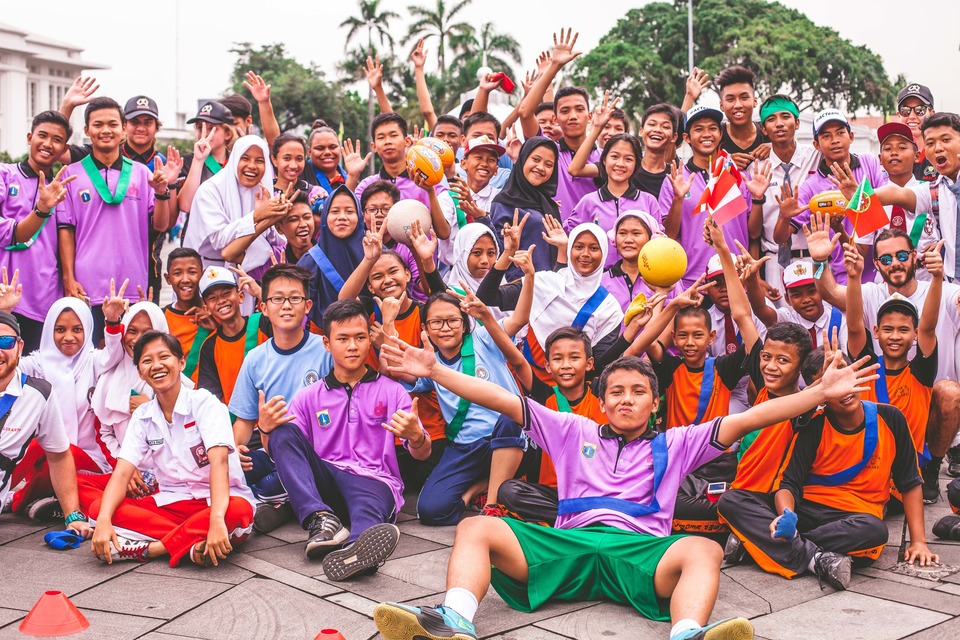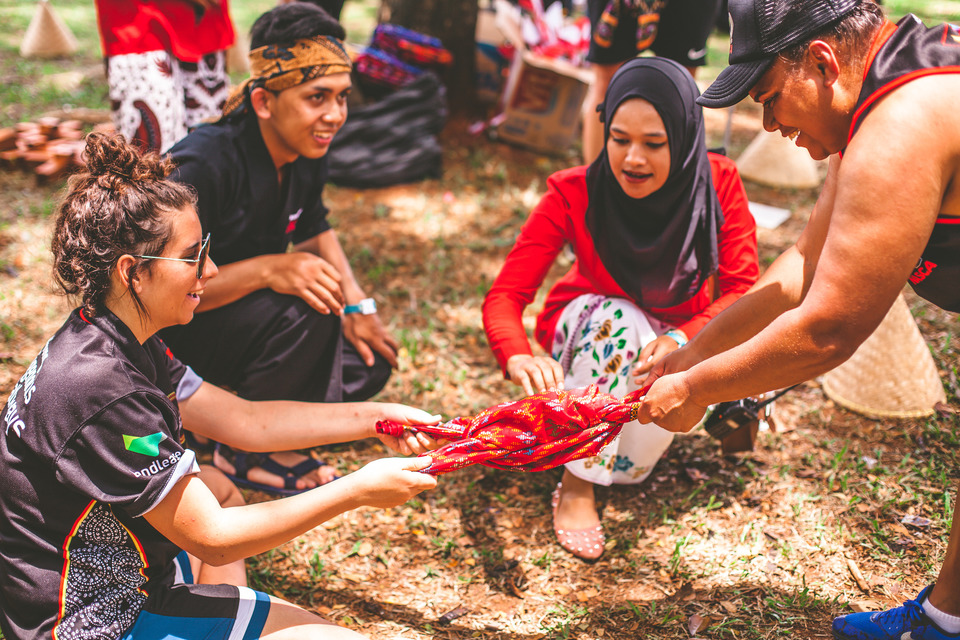NASCA Students Return from TAFSIA Games (Jakarta)
-
27 October 2016
-
2 min read

In early October, an Australian delegation led by Aboriginal young people from Western Sydney returned from an international cultural showcase in Indonesia known as the TAFISA Games – a showcase of traditional Indigenous and modern sports from around the world. The five students, who form a part of the Young Indigenous Pathways Program (a collaboration between Lendlease, the GWS Giants and the National Aboriginal Sporting Chance Academy) came back with the knowledge that Indigenous Australian cultures are a great source of interest for people internationally and that across the globe traditional cultures are thriving.

They also got the opportunity to teach Australia’s Traditional Indigenous Games (TIGs) to other young people and learnt key life skills that will help in their development through their senior schooling years and through their post-school endeavours. TIG demonstrations by the National Aboriginal Sporting Chance Academy (NASCA) have become a means of using the strength of structured sports programs to teach Australian school students about the diversity of Aboriginal and Torres Strait Islander Australian cultures and customs.
In Jakarta the humidity, traffic and language barrier were particular culture shocks for some of the five young people from Kingswood High and Chifely College, some of whom had never left NSW. By the end of the week however they were familiar with the currency, had a new appreciation of diverse foods and had met numerous people from many backgrounds who embraced Australian Indigenous cultures. NASCA CEO Leanne Townsend a key note speaker at the Global Forum, where her presentation on how NASCA uses sport as a means of promoting community development and cultural revival was well received. She highlighted the importance of Male and Female sports participation, the benefits of non-Indigenous Australians embracing activities such as TIGs and how the functionality of these demonstrations should always be in the hands of the young people and their communities.

